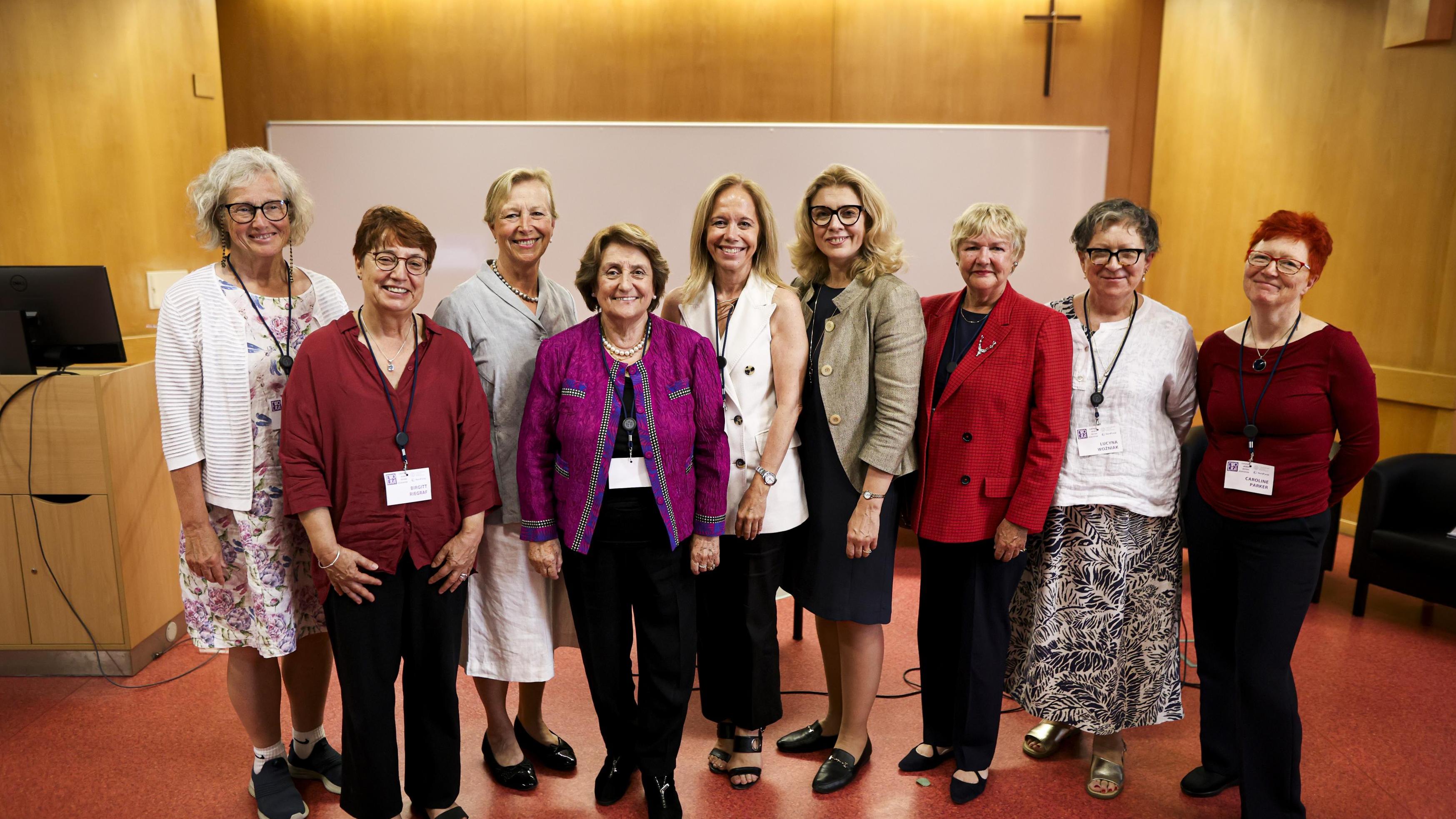
Promoting gender parity in university leadership; having senior leaders with academic and democratic values, aligned with human rights and with a social impact; broadening the community of female leaders at international level; strengthening mentoring programmes for young students and future leaders; stimulating networking, including with women's associations in areas other than academia; and gathering data to guide action and show the impact of female leaders.
These were some of the answers found at the European Women Rectores Association (EWORA) which took place on 26 and 27 June at the headquarters of the Universidade Católica Portuguesa in Lisbon, and whose theme was ‘Gender Equality in Academia is Fragile: Is Values-Oriented Leadership the Answer?’
Bringing together female rectors, vice-rectors, researchers and academic partners, the EWORA conference included several speeches on topics such as the impact of artificial intelligence on academia and female leadership and the gender gap in leadership positions, research and decision-making in European universities, among others.
‘We have to use our collective knowledge and potential to support, explain and help find appropriate paths’ in order to strengthen the community and welcome new generations of leaders in universities, argued the vice-rector of the Medical University of Łódź, Lucyna Woźniak, in the last session dedicated to the theme ‘Looking ahead in difficult times: closing lecture and final considerations’ and which was attended by all the directors of the association's board.
For the association's president and former vice-chancellor of Malmö University, Kerstin Tham, it is essential to ‘define values very carefully and what they really mean’, ensuring ‘responsible leadership for society’.
As for the President of the Universidade Católica Portuguesa, Isabel Capeloa Gil, she gave a new interpretation of the conference theme. ‘There is no value-orientated leadership without considering gender as a basic foundation, as something that underlies it, and not as something that can be added,’ she argued, stressing that this is the only way to achieve inclusive, diverse and egalitarian leadership.
For Isabel Capeloa Gil, there is a need to diversify academic paths, implement new models of progression and access to leadership in universities and create partnerships for training and mentoring programmes that capture young students with the potential to be leaders from an early age, inspire them and prepare them for leadership.
The same conclusion was drawn by the rector of Mykolas Romeris University, Inga Žalėnienė, for whom the answer posed in the conference theme is clear: "Values-orientated leadership is the foundation of resilience in higher education. But it is also very fragile, exposed to erosion and needs to be actively protected and nurtured." Even so, ‘fragile doesn't mean weak, it means something valuable, which we are responsible for protecting together,’ she appealed.
Analysing the current situation, Inga Žalėnienė recalled that ‘academic freedom is under pressure’ and that ‘leadership is not a title, it is an act of courage’. That's why she believes that ‘women leaders are essential not only for the sake of justice and representation, but also for better decisions, ethical governance and stronger communities’.
Closing this last panel, the former headmaster and vice-chancellor of Glasgow Caledonian University, Pamela Gillies, emphasised the importance of working in a collaborative and cooperative way and encouraging young university leadership. ‘The young people of today can be the leaders of now if we give them the opportunity,’ she concluded.


